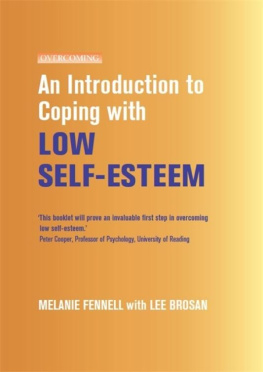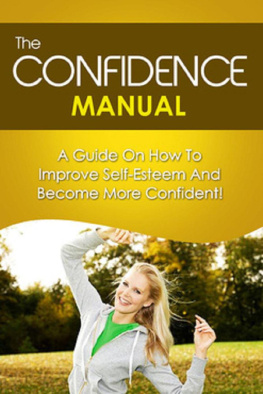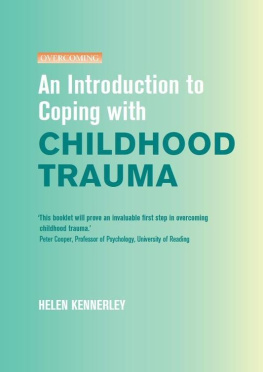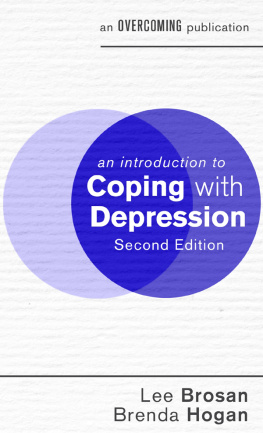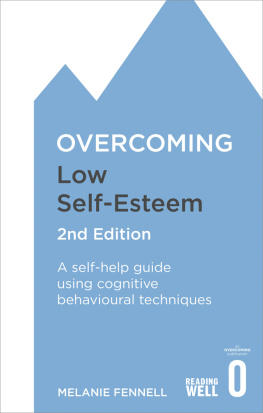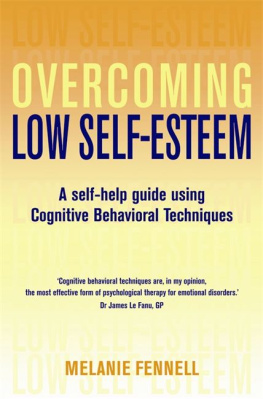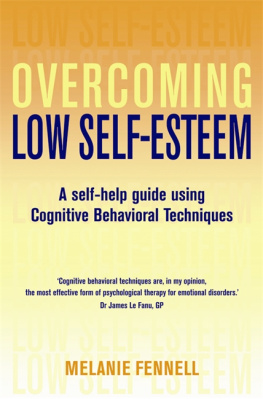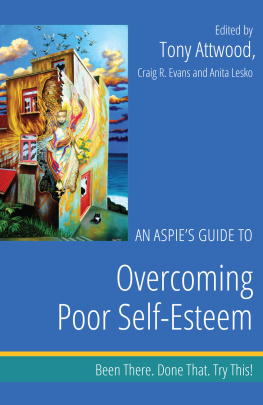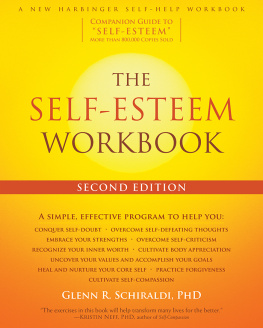Why did you pick up this booklet? The chances are, the title rang bells for you. Perhaps you are aware that you often feel bad about yourself, its hard to be sure of your own worth, or you find it difficult to approach life with the confidence to be who you truly are to appreciate yourself, and treat yourself with respect and kindness.
Whatever the flavour of your particular kind of low self-esteem, this booklet is designed to help you to understand how you came to see yourself as you do, and what prevents you from reaching self-acceptance, confidence and healthy self-esteem . It is based on a psychological treatment called Cognitive Behavioural Therapy, a practical , down-to-earth approach which has a 40-year track record of successfully helping people in distress to transform their lives.
Youll get the most out of the booklet if, rather than just reading it through, you get stuck in and apply the ideas to yourself. Youll find various worksheets you can use to work on important issues, or if you prefer you could buy yourself a special notebook in which you can record what you do, and what you learn. The key thing is to be open-minded and willing to try things to experiment. Heres an opportunity to step back and investigate these old ideas about yourself. What is low self-esteem exactly? How does it affect you? How does it come about? What keeps you stuck in it? What can you do to find a fresh, kinder and more accepting perspective?
The best way of discovering what the booklet has to offer is to put its ideas into practice in everyday life. Re-thinking old attitudes is an important step, but acting differently and looking at what happens as a result is the best route to change. So put yourself in the shoes of the people whose stories we share with you, keep thinking about how the ideas fit your particular circumstances and above all experiment, experiment, experiment. In doing so, you are making a commitment to yourself and to your future.
The booklet is designed for you to use on your own. However, if you find that you dont make as much progress as youd like, or would prefer to take a more in-depth approach to your low self-esteem, take a look at the additional resources listed in the OtherThings that Might Help section at the end of this booklet. Youll find there a couple of books which go into these ideas in more detail. And if facing up to how you feel about yourself makes you feel worse, or is accompanied by serious depression or anxiety or other problems, dont despair. Go to your GP and find out about other ways of approaching the problem working with a psychological therapist, for example, or even medication.
1 What is Low Self-esteem?
I never get anything right.
Im no good.
I dont deserve anything nice.
Other people are better than me.
Im pathetic.
Many people think thoughts like these from time to time, perhaps in particular moods or in certain situations. But if this is how you feel about yourself most of the time, and its hard to see yourself any other way, then you probably suffer from low self-esteem.
Self-esteem means the value or worth you place on yourself as a person, your overall opinion of yourself. If you have low self-esteem, your opinion of yourself will be negative, and you will not attach much value to yourself as a person. Self-esteem is about the judgements that you make of yourself, the way you evaluate yourself.
These judgements may be so ingrained that youre not even fully aware of them, but they can have a major impact on how you feel about yourself and how you lead your life.
For the sake of simplicity we may talk as if you either have low self-esteem or you dont, but its not really as simple as this. In fact, self-esteem is probably more like weight. Some people are very heavy and some are very light, and most people are somewhere in between.
Similarly, some people have pretty healthy self-esteem, and perhaps only want to make small changes, but other peoples low self-esteem is disabling and they would like to make much bigger changes. And as with weight, self-esteem can go up and down over the course of your lifetime, according to what is going on in your life, and sometimes according to your mood as well. And, with determination , both can be changed.
Identifying Your Own Low Self-esteem
If you think low self-esteem might be a problem for you, ask yourself these questions:
Do I like myself?
Do I accept myself, just as I am, warts and all?
Have my experiences in life helped me to appreciate and value myself?
Do I look after myself properly and treat myself kindly?
Am I able to face challenges without assuming Ill fail?
Do I feel its OK to accept help from other people?
Do I feel its OK to accept other peoples love and attention?
Do I expect no more o f myself than I do of other people?
Do I feel good about myself?
If the answer to most of these questions is Yes, then its likely that your self-esteem is pretty healthy. But if you started to clock up more than one or two Nos, or if you read the sentences and thought They must be joking, of course I dont feel like that!, then its likely that your self-esteem is shaky. On the rating scale below, put an X showing how things stand with you right now. How do you score? As you go through the book, come back to your rating from time to time, and see if your self-esteem has changed.
2 The Impact of Low Self-esteem
Low self-esteem can affect you in a number of different ways. Do these descriptions below ring true for you?
Your thoughts: You tend to be self-critical and self-blaming, or full of self-doubt. You tend to ignore or discount anything good about yourself, and instead focus on your weaknesses and flaws.
Your behaviour: You may find it difficult to speak up for yourself, and spend too much time trying to please others. Or you may feel as if nothing you do is good enough, and avoid challenges or drive yourself to perform to a high standard all the time. Or perhaps you hide the real you, convinced that if others could see you as you really are they would reject you.
Your feelings: Low self-esteem can make you feel sad, worried, guilty, ashamed, or frustrated and angry.
Your body: Low self-esteem can also make you feel drained and tired, or tense and uptight. Avoiding eye contact , speaking very quietly, keeping your head down and your shoulders hunched can all reflect low self-esteem.
How you lead your life: Perhaps, for example, at school or at work you find it difficult to put yourself forward for things, or let other people take the credit for what you have done. Perhaps you spend too much time trying to please other people, or feel so frightened of what they might think that you avoid them altogether. Perhaps, in your leisure time, you really want to do something but dont have the confidence to join a club or tackle something challenging. When peoples self-esteem is very low, they may even stop taking care of themselves and their appearance.
3 How does Low Self-esteem Develop?
Lets outline how low self-esteem develops, and what keeps it going. Youll find the whole process summarized in the flowchart on page 12. This is like a map of the territory of low self-esteem , and shows how everything fits together.

